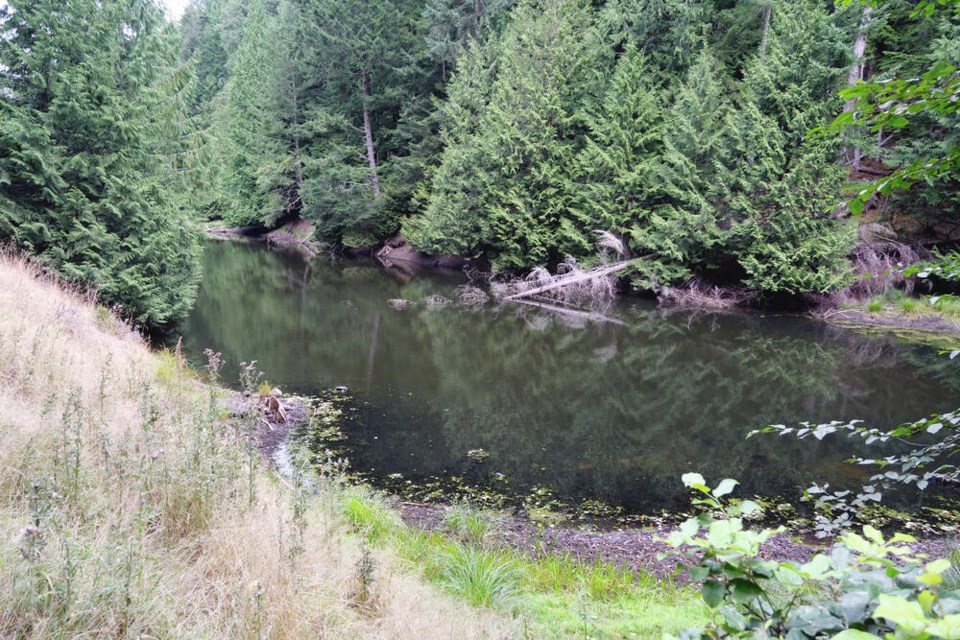The Nature Trust of British Columbia has bought an ecologically important parcel of land on the southwest corner of Saturna Island, adjacent to part of the Southern Gulf Islands National Park Reserve.
The non-profit land conservation organization announced it has acquired 58.1 hectares of a maritime coastal Douglas fir biogeoclimatic sub-zone that features a mild, Mediterranean-like climate, which allows for rich and rare flora and fauna to survive.
“This is an extremely small, extremely rare ecosystem, one of the most at risk in the province,” said Bryn White, conservation land specialist with the trust.
The sub-zone sits in the rainshadow of Vancouver Island and the Olympic Mountains, with a mixture of mature and young forest, woodlands, riparian areas and pocket wetlands that are crucial for rare and threatened species.
The hills of the conservation area are home to wildlife and plant species listed under Canada’s Species at Risk Act, including the barn swallow and the northern red-legged frog (a species of special concern), which has been observed around nearby Money Lake.
The property was previously owned by the Money family, which purchased it in March 1945, according to family representative John Money.
”During my childhood, once my chores were done, I was free to ramble all over Saturna Island along with my brother and some potatoes to roast. It was during these long rambles, which sometimes lasted for many days, that I got to know every inch and cranny of the island and love it,” said Money.
“I hope that there will be other people coming after me that will enjoy rambles over these lands as much as I have throughout my life and the restorative energy from being in the woods that these walks give you.”
The property’s addition to already protected land on the island will “not only protect the coniferous forest ecosystems, and at-risk species, but will also connect our local communities and British Columbians for generations to come,” said Saturna Island trustee Paul Brent.
The acquisition was made possible by Jane McLennan, the Grayross Foundation, the Money family and the federal department of Environment and Climate Change.
“This is a happy story for the residents of British Columbia,” said White. “The acquisition means that this rare ecological system, a habitat for at-risk species, will be protected under our stewardship in perpetuity.”
Over the past 50 years, the trust has acquired and cared for just over 72,000 hectares of natural habitat for vulnerable wildlife and plants.
>>> To comment on this article, write a letter to the editor: [email protected]



